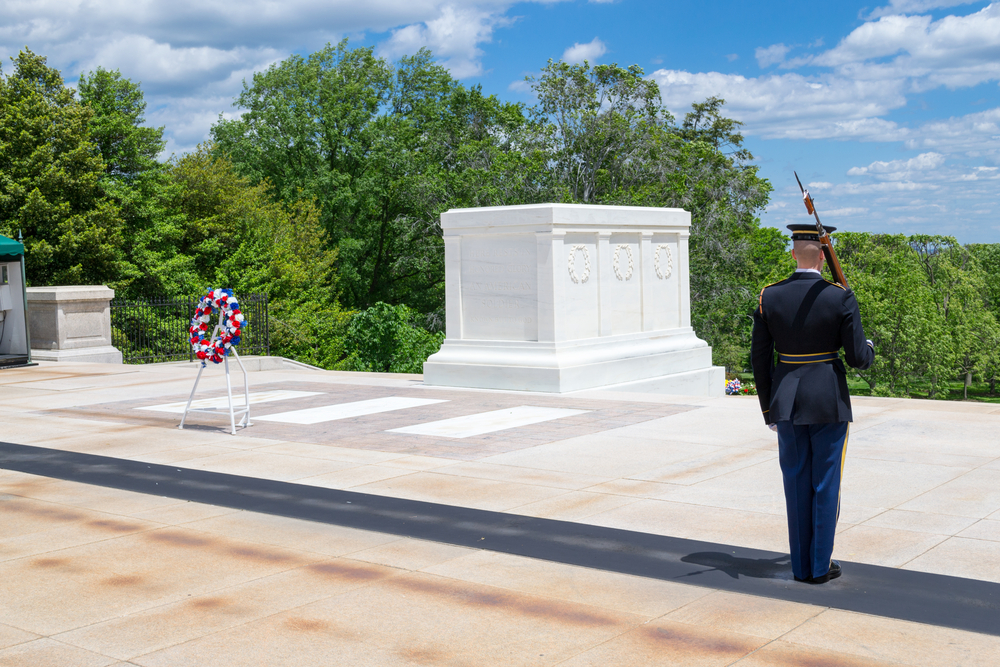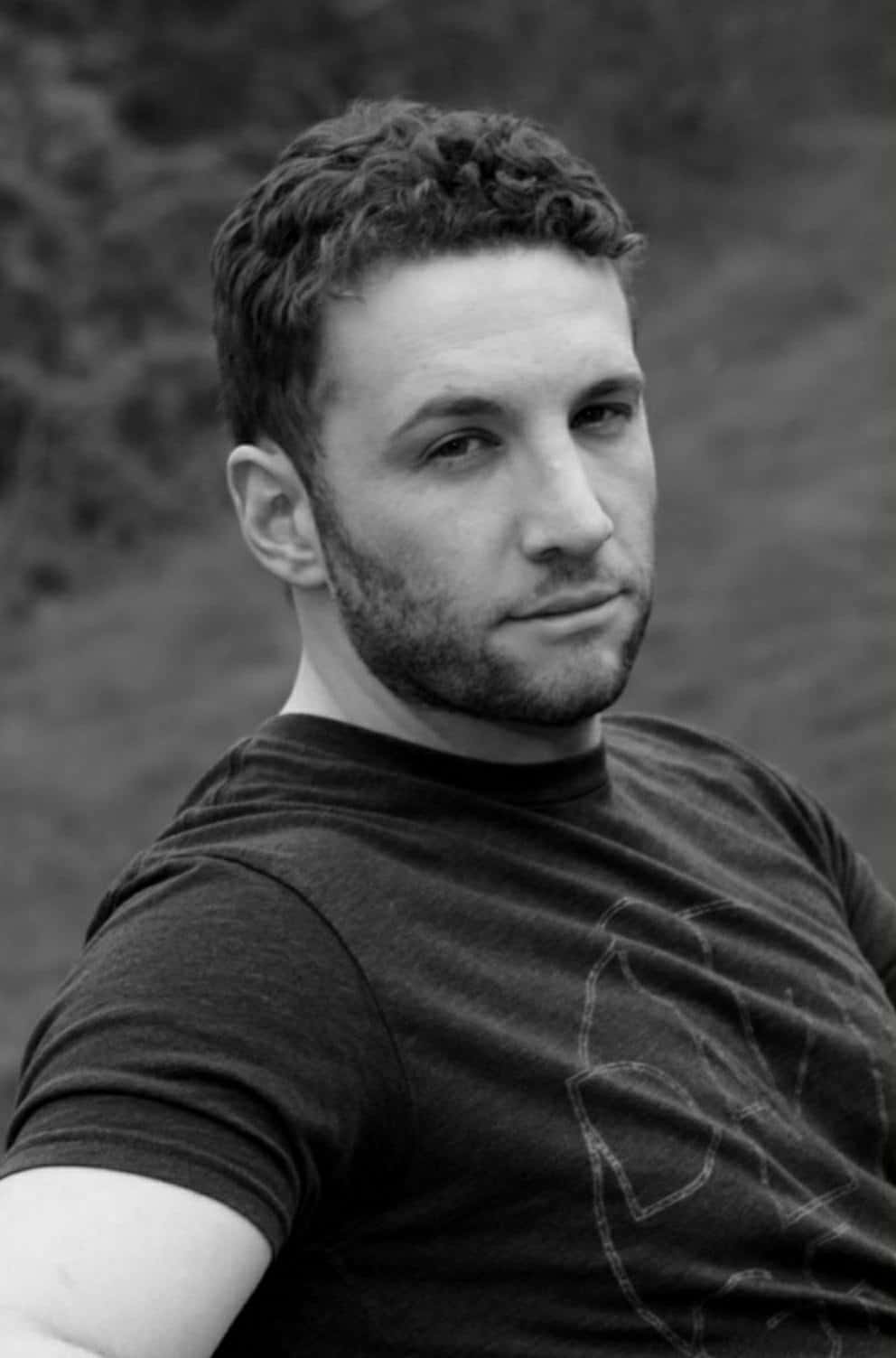Modern nation states have developed an impressive symbolic innovation to memorialize their war dead, the tomb of the unknown soldier:
“No more arresting emblems of the modern culture of nationalism exist than cenotaphs and tombs of Unknown Soldiers. The public ceremonial reverence accorded these monuments precisely because they are either deliberately empty or no one knows who lies inside them, has no true precedents in earlier times…The ancient Greeks had cenotaphs, but for specific, known individuals whose bodies, for one reason or another, could not be retrieved for regular burial.” [Emphasis added]
According to Arlington National Cemetery, which has hosted “The Tomb of the Unknown Soldier” since 1921, its creation addressed a longstanding problem:
“Through the ages, one of the consequences of warfare has been large numbers of unidentified dead.”
Another consequence of warfare is that combat veterans return home. They present a similar problem, one that is addressed through our symbolic representations of warfare.
The living experience themselves as obligated to the dead, but also responsible to safeguard themselves against death’s pollution. The French sociologist Robert Hertz (who died in combat during World War I) described “primitive” societies:
“The period which follows death is particularly dangerous in this respect; that is why the corpse must be exorcised and be forearmed against demons. This preoccupation inspires, at least partly, the ablutions and various rites connected with the body immediately after death: such as, for instance, the custom of closing the eyes and other orifices of the body with coins or beads; it also imposes on the survivors the duty of keeping the deceased company during this dreaded period.”
Our enlightened society is no longer characterized by widespread, professed belief in demons. But we continue to act as if we believed in such entities, especially concerning the dead. Coins placed on eyes is no longer the standard, but eye caps are routinely inserted to keep them closed. Regardless of whether one is a theist, deist, atheist or whatever else you’ve got, no one wants dead eyes “looking” at them.
The modern funeral industry has created an intricate series of rituals for the “dreaded period” between death and burial. Fun fact, modern embalming has its roots in the American Civil War. The next time someone tells you war is great because it leads to innovation, think of a field of corpses and the rise of embalming chemistry.
This responsibility and revulsion is true both within the family and within our nation, which masquerades as a Great Family with its Founding Fathers, daughters of liberty, bands of brothers, Uncle Sam and president as Great Father. Unknown war dead must be cared for and kept from polluting us somehow. The tomb of the unknown soldier fills this need. And in a nation with millions of people, even the identified war dead are unknown to most members of the national community.
Hertz said:
“The ideas and practices occasioned by death can be classified under three headings, according to whether they concern the body of the deceased, his soul, or the survivors.”
The Tomb of the Unknown Soldier assures survivors that the bodies of the war dead have been appropriately “exorcised and forearmed against demons,” their souls have been secured passage to a glorious afterlife and the living have avoided the pollution they can cause.
But what of our returning combat veterans? If war is hell, then these are men and women who have been to hell and back. Like Odysseus in The Odyssey and Aeneas in The Aeneid, they descended to the Underworld, gained powerful knowledge and then returned to the world of the living.
Their bodies survived the war, but their souls have been damaged or even killed. Their souls need healing or resurrection. At the same time, they are a threat to the civilian psyche. Our society does a terrible job of healing and resurrecting our soldiers’ souls, as evidenced by the fact that four times as many combat soldiers and veterans of the Global War On Terrorism have committed suicide as have been killed in combat. But our society does a great job at protecting the civilian psyche.
How many Americans realize that during World War II the U.S. Army raped its way across Europe? Spielberg didn’t put that in Saving Private Ryan, did he? There’s a lot that wasn’t put in that movie. There’s no torture, no suicide, and no soldiers murdering commanding officers. In one scene, the American GIs actually allow a Nazi prisoner to go free. I personally know of a World War II veteran who walked out of the theater after that absurd fantasy appeared on the screen.
There are also no Soviets in the film, even though the Soviet Union killed most of the Nazis.
Saving Private Ryan is representative of American portrayals of war. Despite its reputation for realism, it is extraordinarily detached from the experiences of our soldiers. And that’s because it isn’t for them. It’s for the civilians who never descend to the Underworld. Our culture encourages us to believe that our military is awesomely destructive. But it also encourages us not to dwell too much on all the actual death being dealt out. And certainly not to realize it rapes and tortures. That’s what the enemy does!
That veteran who stormed out of Saving Private Ryan liked to say, “There are no autopsies in war.” We can extend that to say there are no autopsies of the souls of the soldiers who return from war. We prefer their souls embalmed, made up, and buried quickly. A war veteran’s daily immersion in our culture is like going to his own funeral and hearing a priest eulogize someone completely alien to him.
On Memorial Day, let’s do our veterans the honor of recognizing that while we value their service and can romanticize their heroics, we are only capable of celebrating their return. When it comes to confronting where they’re returning from, we really cannot handle the truth.
































